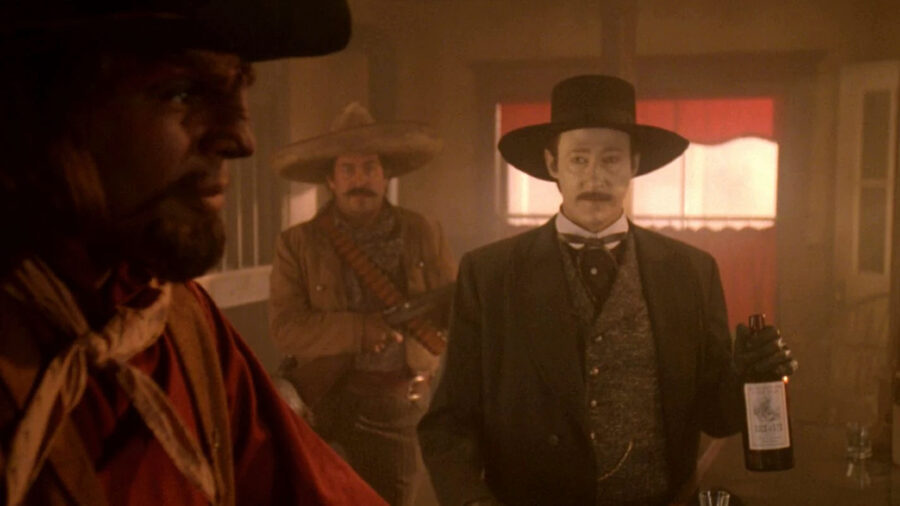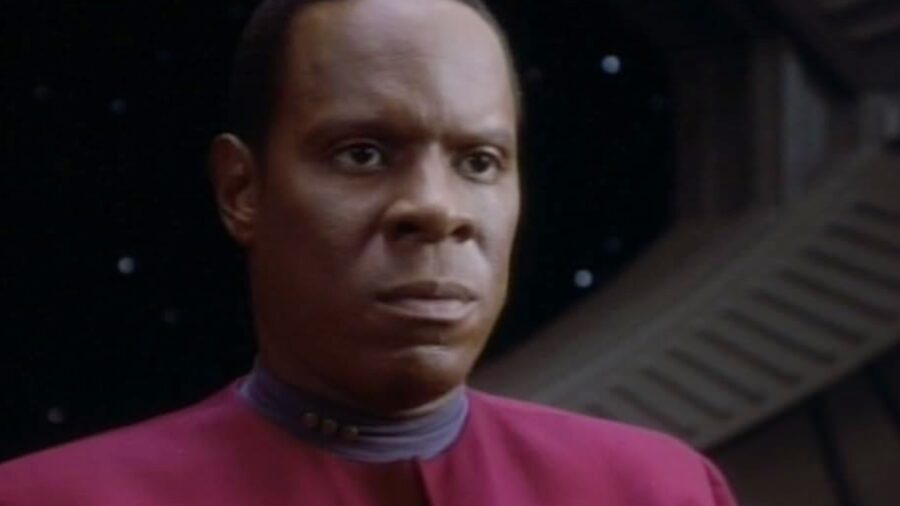A Forgotten Star Trek Episode Made One Writer A True Believer

Star Trek is a franchise that has fiercely loyal fans, and because of that, most of them assume the writers of their favorite shows are true believers. That’s not always the case, however–to some writers, this is just another job and another line on their resume. Interestingly, one of Deep Space Nine’s best writers, Robert Hewitt Wolfe, didn’t fully understand the show until the episode “Dax” made him into the truest believer of all.
Robert Hewitt Wolfe

Before we get to the scales falling off Wolfe’s eyes, you should know a bit more about this prolific and influential writer. He came to the franchise as a young writer, selling the memorable episode “A Fistful of Datas” to Star Trek: The Next Generation.
This helped him land the job of staff writer on Deep Space Nine, though he’s the first to admit he didn’t really understand the assignment until he saw the episode “Dax.”
Originally, Deep Space Nine was pitched as a darker and edgier series than The Next Generation, but Wolfe was a bit disappointed in the earliest days of the spinoff.
“The show was a little less edgy than I thought it was going to be some ways,” he said. Looking back at his time on the show, he concluded “We weren’t really driving these characters until the episode ‘Dax’.”
Dax Clarified Things For Wolfe

Unsurprisingly, Robert Hewitt Wolfe credits most of the episode’s success to its writing. He praised the scriptwriting of co-screenwriter Peter Allan Fields, though he also credits then-showrunner Michael Piller for giving the script a punch-up “which took it to the next level.”
When the whole thing came together, Wolfe realized that “Dax” was more than just a good episode–it was also his key to fully understanding both the ambition and promise of this Star Trek spinoff.
What Makes DS9 Different

Wolfe later noted that the episode “was really eye-opening” and helped him finally “get the show.” He said that he finally got what Michael Piller and Ira Steven Behr were trying to do and that this was a show where “Our heroes don’t have to be innocent all the time.”
Unlike most shows (including The Original Series and The Next Generation), this was a show where “Our heroes are fallible, interesting and complicated people.”
The writer summed up his thoughts on “Dax” quite simply: “I really started seeing the enormous potential of the show.” As Deep Space Nine fans ourselves, it’s impossible to read the writer’s words without a huge smile because Wolfe has perfectly laid out what makes the show so brilliant.
To this day, there are fans wary of watching DS9 because it’s too dark, but the show’s willingness to explore murky morality and perfectly imperfect characters is a large part of why it’s the best Star Trek series ever made.
Wolfe Made Great DS9

After “Dax” made Wolfe a true believer, he went on to work on some of the best episodes for Deep Space Nine, including great two-parters like “Way of the Warrior,” “Homefront” and “Paradise Lost,” and “In Purgatory’s Shadow” and “By Inferno’s Light.”
He was a real switch hitter, too, delivering campiness with the Mirror Universe episode “Through the Looking Glass” and serious gravitas with the season 5 finale “Call To Arms.” He also helped develop the story for “Trials and Tribble-ations,” a hilarious and heartfelt letter to Star Trek as a whole.
Falling In Love With Trek

That was an episode about how making one small change in the past could dramatically change the future, which seems fitting–after all, if “Dax” hadn’t been made and transformed Robert Hewitt Wolfe into a true believer, we might not have gotten one amazing episode after another from this gifted writer.
He fully understood the assignment once he realized this was the first Star Trek series more interested in human drama than simple human adventure. Plus, let’s be real–is there anything more relatable to fans than a writer falling completely in love with a Star Trek series because one episode completely blows your mind?












